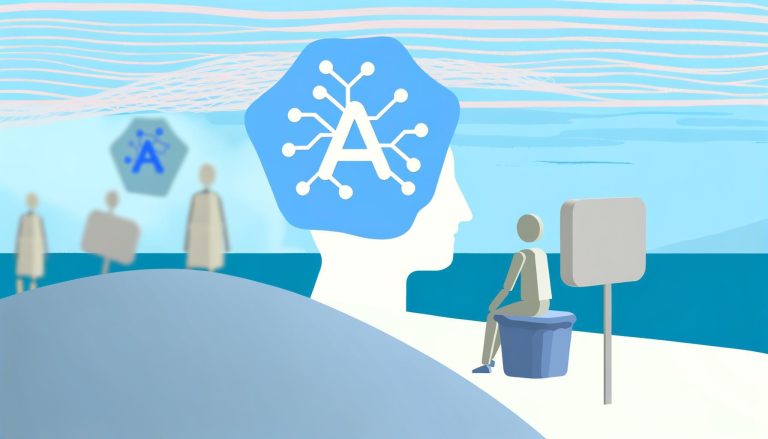Drama therapy has long been valued for its profound impact on emotional health. It leverages role-play and storytelling to help individuals explore and express their emotions. Today, the integration of Artificial Intelligence (AI) into drama therapy is enhancing the effectiveness of these therapeutic practices. This article explores how AI complements drama therapy, benefiting individuals in their journey toward emotional exploration and healing.
The Role of AI in Drama Therapy
Enhancing Role-Play Dynamics
One of the primary ways AI contributes to drama therapy is by enhancing role-playing dynamics. AI can simulate various characters, responses, and scenarios, providing a safe and controlled environment for individuals to engage in role-play. This innovation allows for more complex and varied interactions, aiding in deeper emotional engagement.
- Diverse Character Simulation: AI can simulate a wide range of characters with different personalities and traits, offering richer role-play experiences.
- Consistent and Controlled Environment: Unlike human actors, AI provides a consistent environment, ensuring that the therapeutic scenarios are stable and predictable.
- Immediate Feedback: AI can offer instant feedback, helping individuals understand their emotional responses and adjust accordingly.
Data-Driven Insights
AI’s capability to analyze data brings a new dimension to drama therapy. By tracking an individual’s responses and interactions, AI can provide data-driven insights to therapists, enabling more tailored therapeutic interventions.
- Emotion Analysis: AI can analyze speech patterns, facial expressions, and physiological data to gauge emotional states.
- Progress Tracking: Detailed data allows for tracking progress over time, highlighting improvement areas and identifying potential issues.
- Personalized Interventions: Insights derived from data can be used to personalize therapy sessions, making them more effective.
Benefits of Using AI in Drama Therapy
Greater Access to Therapy
AI can act as a bridge for those who have limited access to traditional therapy methods. With AI-powered platforms, individuals in remote locations or with mobility issues can participate in drama therapy sessions from the comfort of their homes.
- Remote Accessibility: AI platforms offer remote access, eliminating geographical barriers.
- Flexible Scheduling: The availability of AI-driven therapy at various times makes it easier to fit into individuals’ schedules.
- Reduced Stigma: Online sessions might reduce the stigma associated with seeking mental health help, encouraging more people to participate.
Enhanced Emotional Engagement
AI-driven role-play can lead to deeper emotional exploration. The variety of scenarios and consistent feedback create a more immersive experience, encouraging individuals to open up and fully engage with their emotions.
- Diverse Scenarios: AI can simulate numerous scenarios, making it easier for individuals to confront and work through different emotional situations.
- Real-Time Adjustments: The ability of AI to adjust based on user responses ensures that the experience remains relevant and impactful.
- Safe Environment: The controlled environment provided by AI reduces the risk of real-world consequences, allowing for more honest exploration.
Practical Tips for Integrating AI into Drama Therapy
Selecting the Right AI Platform
Not all AI platforms are created equal. When integrating AI into drama therapy, it is essential to choose a platform that aligns with therapeutic goals and offers the required functionality.
- Evaluate Features: Look for platforms that offer advanced role-play simulations and emotional analysis capabilities.
- Usability: Ensure that the platform is user-friendly for both therapists and individuals.
- Security: Data privacy is crucial. Select platforms with robust security measures to protect sensitive information.
Training and Familiarization
Both therapists and individuals need to be familiar with the AI tools being used. Adequate training ensures that the technology is utilized to its full potential, maximizing the benefits for emotional exploration.
- Comprehensive Training: Therapists should undergo comprehensive training to understand how the AI tools work and how to integrate them into therapy sessions effectively.
- Introductory Sessions: Initial sessions should be dedicated to helping individuals get comfortable with the AI interface and functionalities.
- Ongoing Support: Continuous support and updates are essential to address any issues and take advantage of new features.
Continuous Feedback and Improvement
Feedback from users and therapists is critical in refining AI-driven drama therapy. Continuous improvement ensures that the therapy remains effective and beneficial.
- Regular Feedback Sessions: Schedule regular feedback sessions with users to understand their experiences and challenges.
- Iteration: Use feedback to make iterative improvements to the AI tools and therapeutic approaches.
- Stay Updated: Keep abreast of technological advancements and integrate new features that can enhance therapy outcomes.
Collaboration with AI Experts
Collaboration between therapists and AI experts can lead to the development of more advanced and effective therapeutic tools.
- Interdisciplinary Collaboration: Encourage collaboration between mental health professionals and AI developers to create tools tailored to therapeutic needs.
- Research and Development: Invest in research to understand the potential and limitations of AI in drama therapy.
- Innovation Grants: Seek funding for innovative projects that push the boundaries of AI in therapy.
Conclusion
The integration of AI into drama therapy offers exciting possibilities for enhancing emotional exploration and healing. By providing diverse role-play scenarios, consistent feedback, and data-driven insights, AI enriches the therapeutic experience. As technology continues to evolve, the potential for AI in drama therapy will only grow, offering new tools and methods for emotional wellness.
For those looking to track their emotional journey, modern solutions like the Zenora App offer features such as moods and habits tracking, statistical trends, and goal-setting functionalities. These tools can complement AI-enhanced drama therapy, providing a holistic approach to mental health and emotional well-being.





